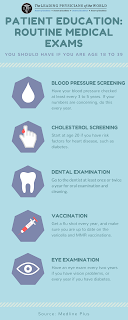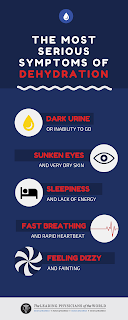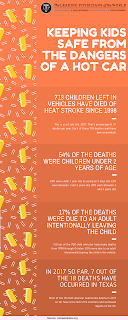Patient Education

Patient education is a process where health care providers teach patients about their health to help them understand their condition in a better way. Patients can get their education in either non-health or health environments and in a non-formal or formal manner. The overall goal of giving patients health education is to help improve individual health and also enhance the performance of the healthcare industry. What are the Benefits of Patient Education? 1. Improve patient’s understanding Getting a routing medical advice from your doctor or nurse ensures that you remain well-informed about your overall own health. Such medical advice includes: · Teaching them about the s ide effects of the conditions they are suffering from and how they can reduce the symptoms · Discuss the diagnosis of these conditions · ...



